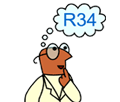|
|
 News
Articles News
Articles
Opportunities and Resources
Advice Corner
New Initiatives
|
News Articles
|
 |
R34s: Out and About
Last issue, we told you about our new two-stage process for investigator-initiated clinical trials in NIAID Launches New Approach for Investigator-Initiated Clinical Trials. In a nutshell, you first apply for a clinical trial planning grant (R34), which prepares you to apply for a clinical trial implementation cooperative agreement (U01).
Since then, the Guide notices have come out with the details you will need to apply:
One item has changed since we published the newsletter article: Due to clearance delays, we moved the planning grant receipt date from June to October 1, 2005, for all applications except AIDS, which are now due on September 1, 2005, rather than May.
This is a new approach, so we expect investigators to have questions. Find the first set of Questions and Answers on our new R34 Web page, and check back for new Q&As we'll be uploading during the next several weeks.
We also plan to post more detailed instructions and other information. If your question is not there, please email it to a staff member listed in one of the program announcements, and we will add yours to the page. |
 |
Always Ask Before Sending in a Big T32
Yes, the same "big grant" policies that are in force for R01s apply to big-ticket training grant (T32) applications. If your application requests more than $500,000 in direct costs in anyyear, it must include an approval letter from NIAID stating that we will accept the application.
"Any" is the operative word. PIs seem to know about the letter for "big grant" first-year costs, but last year many applicants were apparently not aware that the rule stands for "outyears" as well. With no approval letter, the NIH Center for Scientific Review will send your application back to you without peer review.
You can avoid this painful outcome by requesting an approval letter from Dr. Milton Hernández at mh35c@nih.gov. Start early, and send him a message while you're still planning your application. For background on the policy, see the October 16, 2001, NIH Guide notice. |
 |
If Any Part of Your Research Is Overseas, Mark That Checkbox
Does your domestic grant have a foreign component? Is the grant
awarded to an institution overseas?
In either case, don't forget to mark
the appropriate checkbox on the Checklist Form Page of the PHS 398 Grant Application. There's a checkbox for foreign grants, and one for those with a foreign component. These features help NIH staff identify foreign awards or subcontractors. |
Opportunities and Resources
|
 |
Apply Now for a Grant Supplement to Hire a Minority Student
Here's funding that's easy to come by. Through NIAID's Asofsky Scholars in Research program, you can hire high school and undergraduate students interested in biomedical research. With our first awards last year, the program started as a big success, targeting a younger group of future scientists than previous programs.
For details on how to apply, see the February 13 Guide notice. Find other minority programs at Minority Programs Supported by NIAID.
You can also contact Dr. Milton Hernández about this program and other NIAID training opportunities at 301/496-3775 or email mh35c@nih.gov. |
 |
Attention Postdocs: Apply for a Women's Health Fellowship
You may want to look into a new three-year research fellowship in women's health. Set up in collaboration with NIH intramural laboratories, the Women's Health Postdoctoral Fellowship supports studies that span basic, translational, and epidemiological research as well as biomedical history and bioinformatics research.
Funded by a grant from Battelle to the Foundation for NIH, the fellowships encourage multidisciplinary collaborations to overcome gender-based disparities in health care. Mentoring is a plus built into the award.
Fellows must be U.S. citizens or permanent residents who received their doctorates within the past five years.
Apply on the NIH Women's Health Postdoctoral Fellowship site. Go to Current NIH Women's Health Openings then click on a title; the apply button is at the bottom. |
 |
Just the FAQs, Ma'am!
Tired of navigating to dead
ends? Find answers speedily by zipping directly
to NIAID Funding Questions and Answers.
If you haven't visited the site lately, you're in for a surprise. We've added ten new topics in the past few weeks, including Top Questions Investigators Ask Program Officers and NIH -- Organization and Process, both good starting points for illuminating those NIH mysteries.
You can use this site two ways: first, to find that crucial tidbit of elusive information and, second, as a gateway to content throughout the NIAID Funding site.
Don't see your question anywhere? Please let us know immediately. All our reader questions we receive through email or the Feedback Form will be posted -- posthaste! |
 |
Has NIH Posted New Data on Biodefense Funding?
Yes. You can find new data in NIH Extramural Support in Bacteriology Research, which NIH put online as a follow up to the March Science article "An Open Letter to Elias Zerhouni" and the April 1 "NIH Response to Open Letter."
We wrote about this topic previously in "AIDS and Nonbiodefense Funding Are Comparable." |
Advice Corner
|
 |
Are Versioning Woes Locking You Out of Our Sample R01?
Some readers have reported problems viewing our Annotated R01 Research Plan and Summary Statement. Don't miss out on this popular resource -- one of the few actual R01 applications online, and an outstanding one at that.
Since it's a PDF 7.0 file, be sure you've upgraded to the latest version of your PDF software, such as the free Adobe Reader. You can download it from the Web, or ask your local tech support team for help. |
 |
Where to Send Your F32 Progress Report
If you're getting mixed messages about where to send progress reports for
your F32 grant, let us clarify. As we reported in our October 5, 2004, article "New Address for NIH Receipt of Progress Reports," NIH wants all noncompeting progress reports mailed to a centralized address. Send your PHS 416-9 forms to:
Division of Extramural Activities Support, OER
National Institutes of Health
6705 Rockledge Drive, Room 2207, MSC 7987
Bethesda, MD 20892-7987 (Use this ZIP code for the U.S. Postal Service, including express mail.)
Bethesda, MD 20817 (Use this ZIP code for commercial carriers such as FedEx and UPS.)
For more details, read the September 2, 2004, Guide notice.
Find more information on progress reports in Submit
Your Report on Paper and Noncompeting Applications and Program Officer Approval SOP. |
 |
Tell Us Up Front About Foreign Collaborators or Sites
If your grant has a foreign collaborator or site, we need a bit more information
from you. Please send the following info items to your program officer
when you get your award:
- Name of collaborator
- Name of institution
- Address of institution
- Email
- Telephone
- Fax
- Costs
- Role and responsibilities on grant
|
 New
Initiatives New
Initiatives
|
 |
|